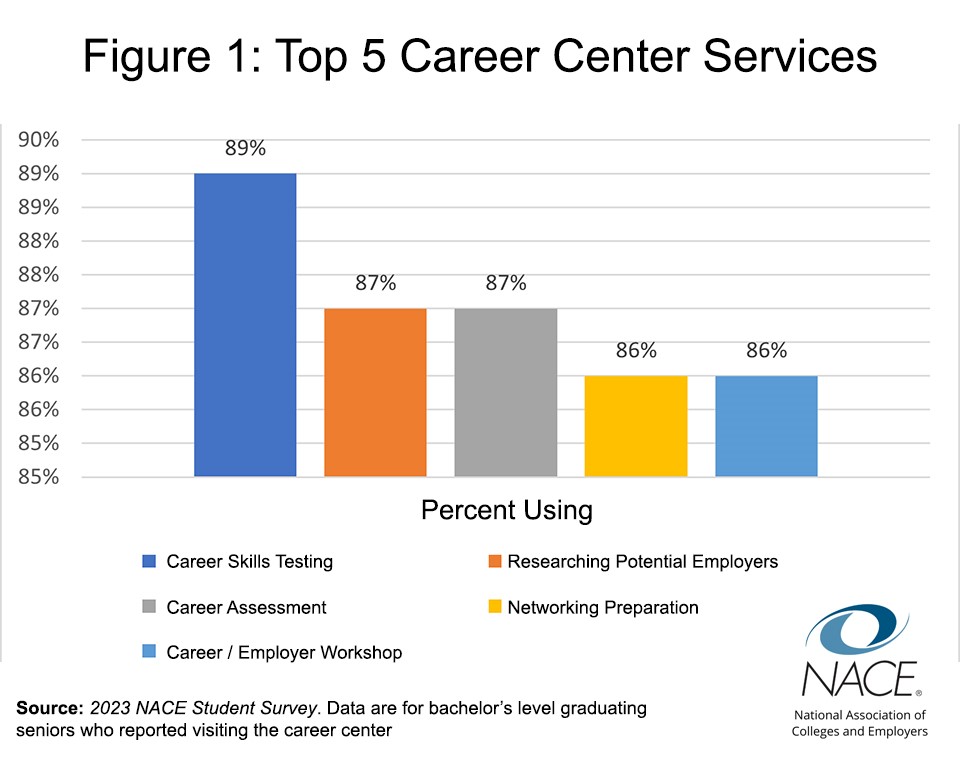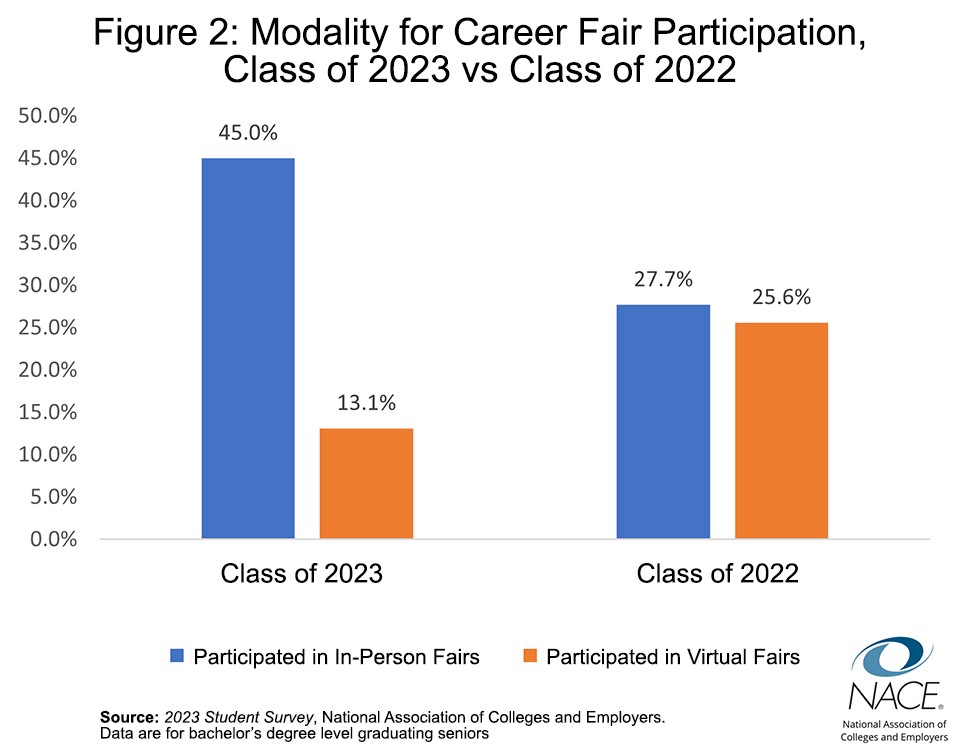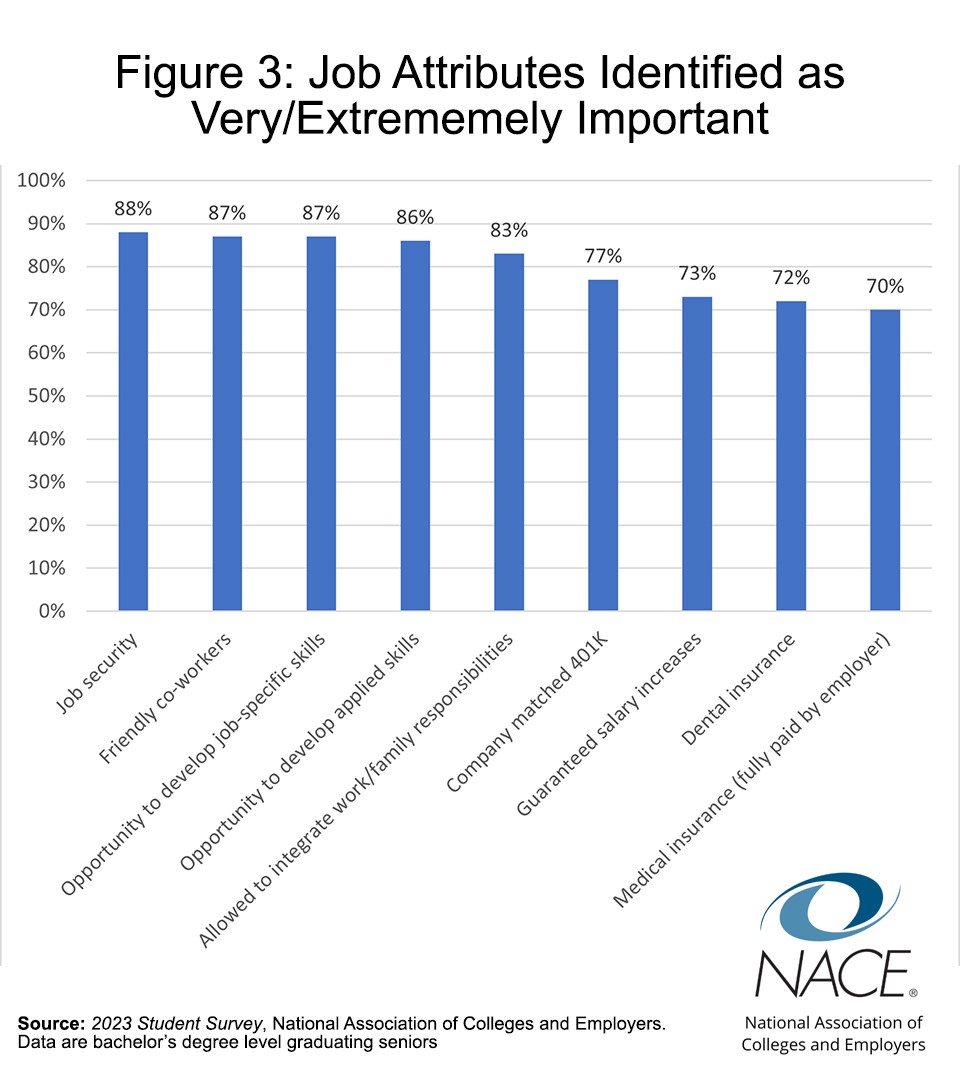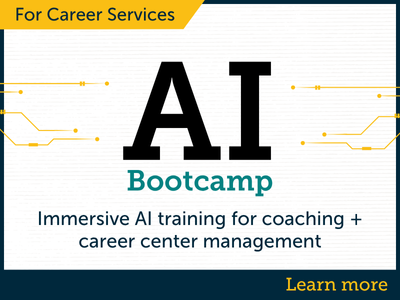As we head into the warm days of the summer, the Class of 2023 is getting ready to make their mark on their first career destinations. They are starting careers in a world that is trying to emerge from a global pandemic but one that continues to grapple with social justice and equity. They are entering a labor market that is characterized by record low levels of unemployment and the increasing normalization of hybrid and remote workplaces. While the labor market is tightening, results from NACE’s Job Outlook 2023 Spring Update show that employers are still planning to hire 3.9% more graduates from the Class of 2023 than they did from the Class of 2022, which was a huge year for hiring.
How are graduating seniors preparing for and thinking about their careers? Data provided by more than 2,300 bachelor’s level graduating seniors taking part in NACE’s annual student survey provide some high-level insights.
The Career Center Is a Key Resource
More than two-thirds of graduating seniors (69%) engaged with their college career center during their college tenure. Among those students, skills testing, research into employers, and career assessments were the most frequently used services, demonstrating that a significant majority see their career center as a key resource in their career preparation and job search. (See Figure 1.)
It is also important to note that more than half of graduating seniors (54%) said their institution prepared them well for their careers, and another 33% said they were moderately well prepared. (Note: NACE will delve into students and their view of the value of higher ed in a special report later this summer.)

Students Welcome Return to In-Person Career Fairs
The end of the pandemic meant a return to many in-person events, including in-person career fairs. Interestingly, about the same percentage of students participated in a fair this year compared to last, but the distribution leans more heavily toward in-person fairs this year. Forty-five percent of graduating seniors reported attending an in-person career fair, and just 13.1% reported taking part in a virtual fair. (See Figure 2.)

For the Class of 2023, participation in in-person career fairs reaped results: Nearly half (49%) of the graduating seniors who attended an in-person fair got an interview and nearly one-third (31%) received a job offer. In comparison, 38% of those who took part in virtual fairs got an interview and one-fifth (20%) received a job offer.
4 Out of 5 Graduating Seniors Engaged in Experiential Learning
Class of 2023 graduating seniors were actively engaged in experiential learning, with 79% reporting they participated in some form during their time in college, and well over half of that group (58%) said their most recent experience was an internship.
In terms of modality, three-quarters of those most recent experiences were fully in person.
The Job Search and Job Offers
Although they expressed a preference for in-person recruiting activities—such as career fairs—Class of 2023 graduates relied heavily on virtual resources for their job search. They identified job-search websites, employer websites, and social media as the top three resources they used.
In terms of seeking employment, more than three-quarters of graduating seniors (78%) said they had applied for at least one full-time job to begin after graduation. On average, Class of 2023 graduating seniors received 1.1 job offers. Overall, 85% of offers were accepted. Among those who accepted an offer, the median salary was $62,500 (N = 513).
What Students Want
Graduating seniors identified a number of attributes as very or extremely important to them in a job—job security chief among them. (See Figure 3.)
Given that the lion’s share cited friendly co-workers among their top priorities, it’s not surprising that a majority (51%) said they want to work fully in person. Another sizable chunk (42%) would like a hybrid work arrangement, while just 7% said they want to work remotely.

The Big Picture
Although more refined analysis of the data is pending—through the final survey report as well as special briefs and articles—there are several 30,000-foot view takeaways that can inform strategy for career services and employers now.
1. Students recognize the value of their career center and their institutions. It is apparent that students understand the connection between their college experience and their career goals.
2. Students want to be in person. The results around career fairs and work modality underscore that new graduates want to interact in person. Hybrid work arrangements may give new graduates the balance they are seeking in work/family life.
3. Students recognize the need to gain experience and are invested in experiential learning as a means of acquiring it. A significant majority of students engage in experiential learning to hone their career readiness skills. This should benefit both the student as a means of transitioning from college to career and the employer as a mechanism for developing a career-ready workforce.
4. What students value in a job has changed little over the years: the opportunity to grow their skills, a good work environment, fair pay, and benefits to support them. These are standard priorities going back many years. Coming off the pandemic, however, the current crop of new college graduates is perhaps more aware of the value of personal interaction (especially since operating virtually was the norm for a sustained period of time) and the need for work/life balance.
NACE’s 2023 Student Survey was conducted from March 15, 2023, to May 19, 2023. Overall, 18,966 bachelor’s degree-level students took part; among these were 2,307 students who identified as graduating seniors. A report based on results from the survey will be available in the fall.






